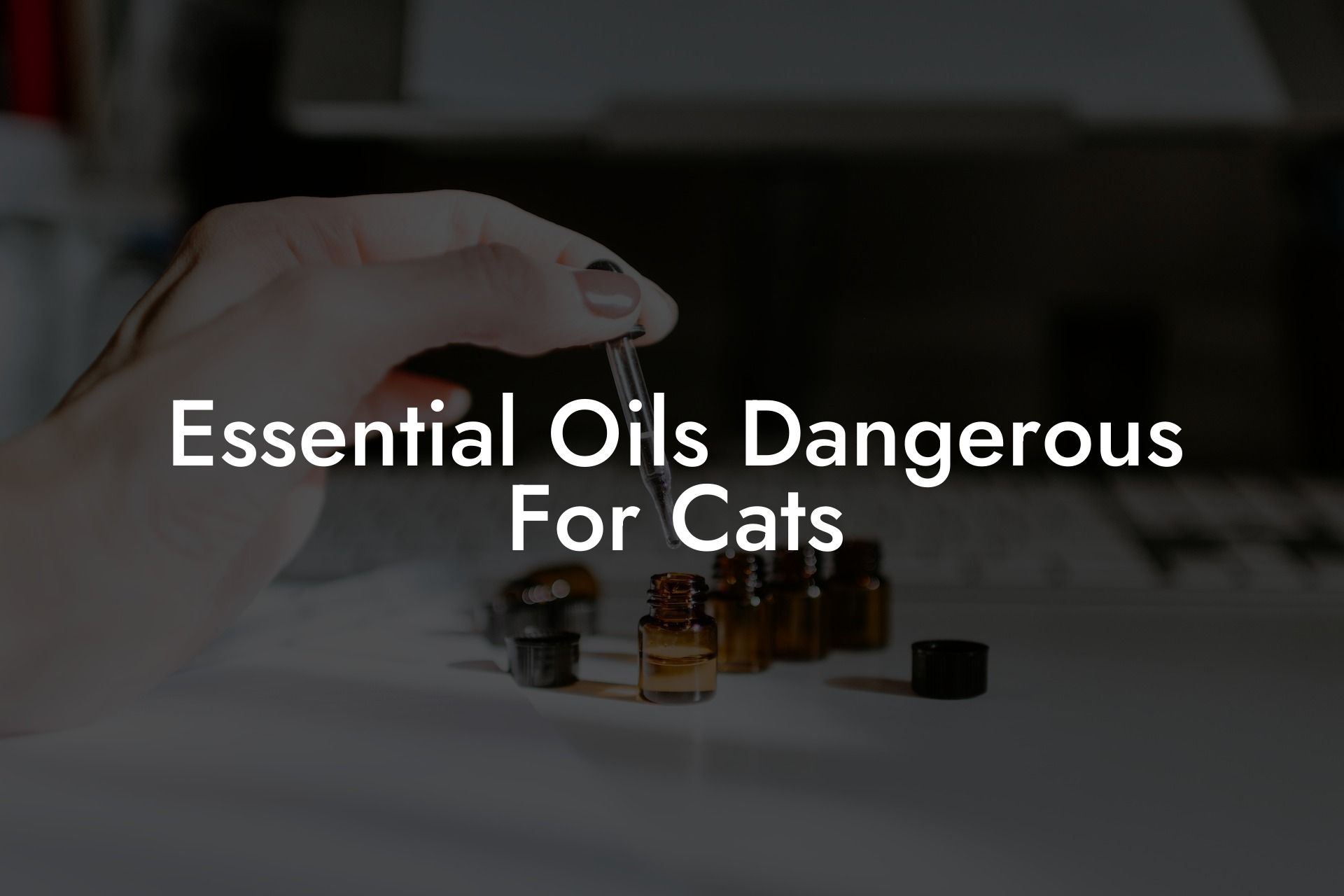Are you an essential oil enthusiast who also happens to share your home with a feline friend? If so, you’ve probably wondered if essential oils are safe for your furry companion. While essential oils have numerous therapeutic benefits for humans, they can be potentially dangerous for cats. In this article, we’ll dive deep into the world of essential oils, explore their effects on cats and which oils to avoid, and give you some practical guidelines to keep your kitty safe.
Table of Contents
Why Are Essential Oils Dangerous for Cats?
Cats have unique liver enzymes that make it difficult for them to break down and metabolize certain substances found in essential oils. This means that exposure to certain essential oils can lead to a buildup of toxic compounds in their system, which can result in a range of health issues, from mild irritation to severe organ damage and even death.
Additionally, cats have a heightened sense of smell, making them more sensitive to the strong scents of essential oils. Prolonged exposure to potent essential oil diffusers can cause respiratory distress in your feline companion.
Routes of Exposure
There are three main ways essential oils can harm your cat:
- Direct skin contact: Applying essential oils topically to your cat’s skin or fur can lead to absorption through the skin and cause toxic reactions.
- Ingestion: Cats are notorious for grooming themselves, so licking off essential oils applied on their skin or ingesting diffuser water can lead to toxicity.
- Inhalation: As mentioned earlier, cats are sensitive to strong scents, and inhaling concentrated essential oil vapors can cause respiratory distress and other issues.
Essential Oils to Avoid Around Cats
While all essential oils should be treated with caution around cats, some are particularly toxic to our feline friends. Here are a few essential oils to avoid if you have a cat:
- Citrus oils (e.g., lemon, orange, grapefruit, lime, and bergamot)
- Peppermint oil
- Eucalyptus oil
- Tea tree oil
- Lavender oil
- Pine oil
- Spruce oil
- Wintergreen oil
- Ylang-ylang oil
- Cinnamon oil
How to Safely Use Essential Oils with Cats:
1. Dilute, dilute, dilute!
If you still want to use essential oils in your home, always be sure to use a low concentration. Use just a few drops in a diffuser at any given time and avoid applying oils directly to your cat.
2. Ventilate your home.
Make sure your home is well-ventilated, especially if you’re using an essential oil diffuser. Open doors and windows to allow plenty of fresh air into your home.
3. Give your cat an escape route.
Cats should always have a safe space where they can go to avoid exposure to essential oils. Create a “scent-free” zone where your cat can go if they become overwhelmed or distressed.
Essential Oils Dangerous For Cats Example:
Imagine you’ve recently purchased a beautiful, aromatic lavender essential oil to promote a good night’s sleep. You’re excited to use your new oil in a diffuser in your bedroom, unaware that your cat Fluffy is sensitive to lavender. As you enjoy the soothing scent, Fluffy starts wheezing and showing signs of respiratory distress. It’s crucial to recognize these symptoms, remove the diffuser, and provide fresh air. In the future, you may opt for a scent-free sleep aid or create that safe space for Fluffy when using essential oils.
Ultimately, we must remember that our feline friends depend on us to make wise choices for their health and surroundings. Although essential oils have great benefits for us, it’s essential to be cautious of their potential dangers for cats. By following the guidelines in this article, you can continue enjoying your artisan essential oils without endangering your cat. If you found this information helpful, please share this article with fellow cat owners. Be sure to explore our other guides on Oshu Oils and discover our range of essential oils to support your wellbeing.





















